http://www.zerohedge.com/news/2013-09-14/guest-post-7-choices-left-military-industrial-complex
 Of course they do! Matthew Cagle writes at the ACLU’sFree Futureblog:
Of course they do! Matthew Cagle writes at the ACLU’sFree Futureblog:

September 13th, 2013
 The Watertown, Mass. Police Foundation is asking residents to submit photos to be considered for the town’s 2014 calendar that would memorialize the events of April 19, or the day the Boston suburb was placed on total police state, martial law lockdown.
The Watertown, Mass. Police Foundation is asking residents to submit photos to be considered for the town’s 2014 calendar that would memorialize the events of April 19, or the day the Boston suburb was placed on total police state, martial law lockdown.
 As if attempting to embed the notion that slavery is freedom, a mock-up of what the calendar may look like absurdly states in bold letters, “All of America watched as they kept us safe. Their courage made us proud. They never backed down.”
As if attempting to embed the notion that slavery is freedom, a mock-up of what the calendar may look like absurdly states in bold letters, “All of America watched as they kept us safe. Their courage made us proud. They never backed down.”

Guest Post: The 7 Choices Left To The Military-Industrial Complex
Submitted by Tyler Durden on 09/14/2013 21:02 -0400

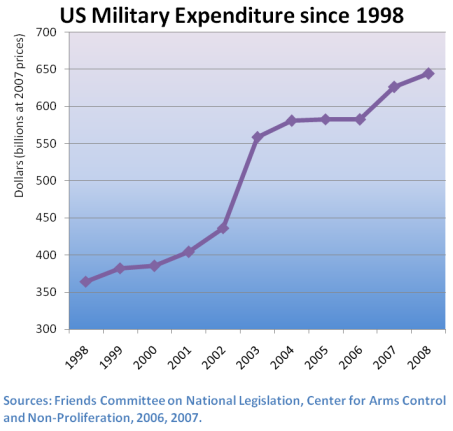
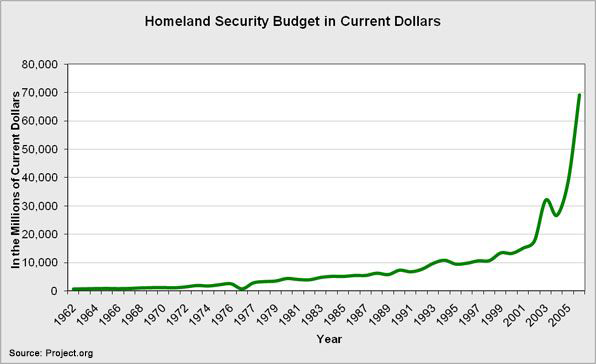
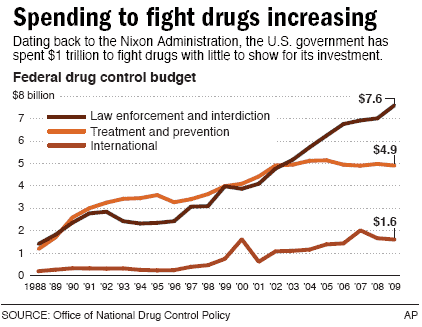
Since 2002 the US government has presided over one of the most dramatic financial bubbles of all time: the bubble of the military-industrial complex. (A few will remember that Dwight Eisenhower warned Americans about this in 1961.) This bubble, like all others, will pop, and it looks to be deflating right now - as we have pointed out vociferously.

The amounts of money that have been spent in the past decade can only be characterized as obscene. But the point that really matters is this: Military spending is just part of the bubble. The military-industrial-intelligence-law enforcement complex has only a few choices left in front of it. (Aside from rational things, like giving up their immoral and abusive game.)
Submitted by Paul Rosenberg via Free-Man's Perspective blog,
...In addition to the military complex, we have a massive intelligence complex.
Not only that, but we also have a massive law enforcement complex. The Department of Homeland Security has given them at least $34 Billion in the past several years, on top of their take from local taxes, state taxes, fines, seizures, and other Fed money.
Take a look at these graphs. First, defense spending:

Then, intelligence spending, or as close as I’ve been able to get to real numbers:

Lastly, War on Drugs spending, which we’ll use as a proxy for overall law enforcement spending (numbers that are more difficult to acquire):

Needless to say, this multi-headed beast is huge, requiring oceans of money… and it’s about to have its rations cut. Actually, that may be why they’re so hot for a war in Syria – they need to goose spending again, and quickly.
Power Corrupts, but Arrogance “Stupidizes”
Yeah, I know that word’s not in the dictionary, but it should be.
These agencies are drunk on power and stupid on arrogance.
There’s no other way to describe a situation where the intelligence and law enforcement branches of this beast have been waging a war against the American people for the last few years.
Think of the endless search for “domestic terrorists,” the sickening NSA spying on everyone, and the 135 SWAT team raids per day in America. Apparently it has never entered their minds that people might eventually resent being abused.
It’s also useful to understand that “intelligence agency” is the same thing as “secret service,” and very little different from “secret police.” They’ve had secret courts for some time, after all.
I won’t even talk about the rampant corruption that runs through all of these departments; you can either trust me on that one or not.
And this situation reaches all the way to local cops. I had a conversation recently with a young man who recently completed a stint with the US Marines and didn’t know what he wanted to do next. At one point, he said that he thought about being a police officer (an easy fit for a Marine), but he rejected the idea.
“Why?” I asked.
“Cops are bullies,” he responded.
And indeed they are. They lie all the time, they intimidate people all the time, and they treat everyone as a violent perp. (Except if you’re rich or politically connected, of course.) Like the rest of the military-industrial complex, they are out of control.
There used to be cops who were exceptions to this young man’s “bully” statement, but they have been vanishing rapidly. Cops are routinelytaught to intimidate and lie.
What Dooms Them
So, while things look absolutely horrible at the moment, the rug is being pulled out from underneath these wastrels.
The issue here (as it so often is) is fiat currency. The money for all of this War Welfare has NOT come from taxes. Instead, it has come from deficits, a.k.a. money printing. The problem is, the money printing game is sputtering. And without a strong money printing program, future increases in military spending will have to come from increased taxes – and there simply isn’t any more to be taken.
American workers already have about half their money taken from them. The now-denuded middle class is surviving on food stamps, disability payments, and a dozen other programs that dish out federal money. They’ve undergone a long, hard fall, from working machines to working government programs.
Their Choices
The military-industrial-intelligence-law enforcement complex has only a few choices left in front of it. (Aside from rational things, like giving up their immoral and abusive game.)
Those choices include:
- Find a way to legitimately juice the economy. (Good luck.)
- Make people want to be poorer. (Again, good luck.)
- Act like Stalin and terrorize your populace openly. (Americans still have guns.)
- Create a really, really scary foreign devil. (A tough sell these days, but not for lack of trying.)
- Create an iron-clad, world monetary system and government. One that can feed them no matter what. (Probably requires a nuclear war first.)
- Create a truly scary war, with piles of dead people in US cities. Then folks will be frightened enough to hand over the rest of their money.
- Down-size: Work with their politicians and bankers to dominate only the major cities, the major corporations, and those who will live as dependents to the system. Abandon most of the rest and stop meddling in all the world’s affairs.
The one other possibility for them is to convince the Fed to print faster and damn the consequences. And they may choose that option first, since it would allow them to kick the can just a little bit further down the road.
But once that’s done, they’ll be right back to these seven choices.
From Blacklisted news....
E-ZPasses Get Read All Over New York (Not Just At Toll Booths)
September 13, 2013
Source: Forbes
After spotting a police car with two huge boxes on its trunk — that turned out to be license-plate-reading cameras — a man in New Jersey became obsessed with the loss of privacy for vehicles on American roads. (He’s not the only one.) The man, who goes by the Internet handle “Puking Monkey,” did an analysis of the many ways his car could be tracked and stumbled upon something rather interesting: his E-ZPass, which he obtained for the purpose of paying tolls, was being used to track his car in unexpected places, far away from any toll booths.
Puking Monkey is an electronics tinkerer, so he hacked his RFID-enabled E-ZPass to set off a light and a “moo cow” every time it was being read. Then he drove around New York. His tag got milked multiple times on the short drive from Times Square to Madison Square Garden in mid-town Manhattan…
… and also on his way out of New York through Lincoln Tunnel, again in a place with no toll plaza.
At Defcon, where he presented his findings, Puking Monkey said he found the reading of the E-ZPass outside of where he thought it would be read when he put it in his car “intrusive and unsettling,” quoting from Sen. Chuck Schumer’s remarks about retailers tracking people who come into their stores using their cell phones.Read More...
Puking Monkey is an electronics tinkerer, so he hacked his RFID-enabled E-ZPass to set off a light and a “moo cow” every time it was being read. Then he drove around New York. His tag got milked multiple times on the short drive from Times Square to Madison Square Garden in mid-town Manhattan…
… and also on his way out of New York through Lincoln Tunnel, again in a place with no toll plaza.
At Defcon, where he presented his findings, Puking Monkey said he found the reading of the E-ZPass outside of where he thought it would be read when he put it in his car “intrusive and unsettling,” quoting from Sen. Chuck Schumer’s remarks about retailers tracking people who come into their stores using their cell phones.Read More...
Source: Infoworld
The carrier wants to charge websites for carrying their packets, but if they win it'd be the end of the Internet as we know it
The carrier wants to charge websites for carrying their packets, but if they win it'd be the end of the Internet as we know it
Think of all the things that tick you off about cable TV. Along with brainless programming and crummy customer service, the very worst aspect of it is forced bundling. You can't pay just for the couple of dozen channels you actually watch. Instead, you have to pay for a couple of hundred channels, because the good stuff is scattered among a number of overstuffed packages.
Now, imagine that the Internet worked that way. You'd hate it, of course. But that's the direction that Verizon, with the support of many wired and wireless carriers, would like to push the Web. That's not hypothetical. The country's No. 1 carrier is fighting in court to end the Federal Communications Commission's policy of Net neutrality, a move that would open the gates to a whole new -- and wholly bad -- economic model on the Web.
As it stands now, you pay your Internet service provider and go wherever you want on the Web. Packets of bits are just packets and have to be treated equally. That's the essence of Net neutrality. But Verizon's plan, which the company has outlined during hearings in federal court and before Congress, would change that. Verizon and its allies would like to charge websites that carry popular content for the privilege of moving their packets to your connected device. Again, that's not hypothetical.
Read More...
Now, imagine that the Internet worked that way. You'd hate it, of course. But that's the direction that Verizon, with the support of many wired and wireless carriers, would like to push the Web. That's not hypothetical. The country's No. 1 carrier is fighting in court to end the Federal Communications Commission's policy of Net neutrality, a move that would open the gates to a whole new -- and wholly bad -- economic model on the Web.
As it stands now, you pay your Internet service provider and go wherever you want on the Web. Packets of bits are just packets and have to be treated equally. That's the essence of Net neutrality. But Verizon's plan, which the company has outlined during hearings in federal court and before Congress, would change that. Verizon and its allies would like to charge websites that carry popular content for the privilege of moving their packets to your connected device. Again, that's not hypothetical.
Read More...
 Of course they do! Matthew Cagle writes at the ACLU’sFree Futureblog:
Of course they do! Matthew Cagle writes at the ACLU’sFree Futureblog:As we learn more about the US intelligence community’s top secret, multi-billion dollar “Black budget” and how the NSA pays technology companies to comply with the Prism spying program, another mostly unnoticed pipeline moves billions of federal surveillance dollars from the Department of Homeland Security (DHS) to local governments for dragnet surveillance systems that include video camera networks, automated license plate readers, facial recognition, and even drones and tanks. As the scope of federal surveillance becomes clearer, all of us should take a hard look at federal surveillance grants to local communities, consider how they distort local democracy, and demand more civil liberties safeguards, oversight, and accountability.
Federal grants to local and state governments for the purchase of new surveillance technology have risen dramatically over the last decade, all with little to no local oversight. Federal dollars—as much as $300 million from DHS just last year—find their way to local governments via opaque grant programs. Many times, grant applications go to D.C. straight from the desk of unelected local officials. Local representatives and community members may not learn about these applications or the planned use of the grant money until it arrives, at which point there is subtle pressure to accept the funds or lose future federal dollars. Any debate over local purse strings slips into the background as the primary question for local governments becomes “Why wouldn’t we take this cash?”
Here in California we’ve seen numerous examples of federal grant funds encouraging local law enforcement to seek out surveillance technology. A portion of an estimated $50 million in federal funding has allowed Northern California police departments to adopt automated license plate readers that record data on innocent citizens from atop police cars and save it in federal databases. In San Diego, a $500,000 federal grant funds a facial recognition system capable of identifying and building profiles of people without criminal records—this is in addition to the many federally-funded local video surveillance systems in California and elsewhere. Last year, the ACLU of Northern California fought the Alameda County Sheriff’s plans to seek acceptance of federal funds for a drone, and the Berkeley police department even acquired funds to purchase a tank. Finally, in July 2013 Oakland accepted $2 million federal dollars to create a “domain awareness center” network of surveillance technology aimed at its own residents. These examples are striking, yet they are just a snapshot of a larger national trend towards federally funded local surveillance (not to mention the militarization of police).
Like the federal intelligence community’s black budget, which allows our federal government to allocate billions of taxpayer dollars for spying, all without public debate, these federal grants to local communities also distort the democratic process and prevent a meaningful discussion of the relative costs and benefits of surveillance technology. This cannot continue. Increased transparency about surveillance programs needs to be built in from the start and it should begin with robust public discussion well before applications are made for federal funds.
Mint Press News....
What Counts As ‘Journalism’? Senate To Decide
A Senate bill that would protect journalists from being forced to reveal their sources hinges on the definitions of “journalism” and “journalist.”

New York Times reporter Judith Miller talks to reporters outside U. S. District Court in Washington Friday, Sept. 30, 2005, after testifying to a grand jury investigating the leaking of a CIA operatives identity. Miller served three months in jail for earlier refusing to divulge her source in the matter. Times Executive Editor Bill Keller is at right. (AP Photo/Dennis Cook)
For the first time ever, Congress has decided has crafted a piece of legislation that determines whether or not a person is a journalist, in a bill designed to give federal protection to journalists and bloggers from being forced to disclose the identities of their confidential sources. This would mean that before the government could ask a news organization or a journalist to identify their sources, it must first go to a federal judge, who would supervise any subpoenas or court orders for the information.
But the legislation comes with a catch. In order for a person to be protected under the bill, one must first meet the criteria for being termed a “journalist” — and even then, journalists will not be protected in all situations.
Though freedom of speech, which includes the printed word, is protected under the First Amendment, media shield laws are supposed to go above and beyond in terms of protecting a journalist from being forced to disclose confidential information and sources.
The Senate Judiciary Committee passed the bill, the Free Flow of Information Act of 2013, on Thursday in a13-5 vote. Though most states have their own media shield laws, they vary in terms of protections for reporters. If the legislation passes, this would be the first federal media shield law.
At the urging of Sen. Dianne Feinstein (D-Calif.), the committee defined what they considered “journalism” as well as who qualified to be labeled as a “journalist.” Feinstein said legal protection should only be extended to “real reporters” and not a “17-year-old” with their own website.
Originally the bill would have covered all persons who “investigates events and obtains material to disseminate news and information to the public.” But this was altered as part of a compromise between the members of the committee.
“I think journalism has a certain tradecraft. It’s a profession. I recognize that everyone can think they’re a journalist,” Feinstein said. “I can’t support it if everyone who has a blog has a special privilege … or if Edward Snowden were to sit down and write this stuff, he would have a privilege. I’m not going to go there.”
Feinstein was one of a few Senate Judiciary Committee members who expressed concern about revealing classified information in the press.
By contrast, Sen. Patrick Leahy, (D-Vt.), chairman of the Judiciary Committee, said, “One of the things that protect democracy is the free flow of information,” and added that the public learned valuable information about the NSA after Snowden released classified documents earlier this year.
What is journalism? Who is a journalist?
Under the new legislation, protected journalists would include those who gather and report on news for “an entity or service that disseminates news and information,” whether they be freelancers, part-time staff or student journalists. Journalists also have to have been employed for one year within the last 20 years or three months within the last five years.
The language the committee used in its definition of a journalist also allowed for a federal judge to extend the journalist protection legislation to any organization that proved it conducts “legitimate news-gathering activities.” What counts as “legitimate” news-gathering was not explicitly defined, however.
The federal legal protections for news outlets and media personnel will not be extended to organizations such as WikiLeaks, which discloses “primary-source documents … without authorization.” Additionally, non-journalists who disclose information on Twitter, blogs or other social media sites will not be protected under the proposed federal media shield law.
While the bill purports to protect journalists, it does not grant absolute privilege to any person or any organization. “Real reporters” will also be forced to share information if federal officials believe the information could stop or prevent crimes such as murder, kidnapping, child abduction, acts of terrorism or that otherwise cause significant harm to national security.
Supporters of the legislation say the bill is likely to pass the Democrat-controlled Senate, but its fate remains uncertain in the Republican-led House. Opponents expressed concern that the bill did not take into consideration efforts to protect national security interests and unconstitutionally allowed the government to determine who is a journalist.
The Reporters Committee for Freedom of the Press said that if the bill does become law, it “goes a long way toward ensuring that reporters will be protected from subpoenas for their confidential information and sources. … While is it not as inclusive as we would like, it is not nearly as limited in that area as previous attempts at a federal shield law have been.”
Sen. Charles E. Schumer (D-N.Y.) also applauded the bill, saying, “We’re closer than we’ve ever been before to passing a strong and tough media shield bill. Thanks to important bipartisan compromises, we’ve put together a strong bill that balances the need for national security with that of a free press.”
One of the five votes cast against the media protection measure was from Sen. John Cornyn (R-Texas), who called the legislation a diversion by the White House, pointing out it was introduced three days after news broke that the government had secretly subpoenaed two months’ worth of phone records for staff at the Associated Press and had obtained a secret search warrant to review emails of Fox News journalist James Rosen.
“A new law is not what we need,” Cornyn said, regardless of whether the Obama administration has “been the most abusive to the press in modern times.” He said the fact that the Senate was debating who should be considered a journalist should be “chilling to us all,” but during the meeting said only American journalists should be protected.
However, the Texas senator noted that putting such legislation into place would likely prevent the Obama administration and future administrations from overstepping their authority.
DOJ revamps media guidelines
After the revelations that media organizations were being spied on emerged earlier this summer, President Obama told the Justice Department to develop guidelines to protect journalists and pledged his support for the pending media shield bill.
In July, U.S. Attorney General Eric Holder released seven new media guidelines for the Department of Justice. Arguably the biggest alteration was that reporters would be notified within 45 days of a request from the DOJ to turn over communications or business records. The extended time period also allows a news organization or journalist to challenge the government’s need to review the materials.
Cryptogon....
Google Probably Knows Nearly Every Wi-Fi Password in the World
September 13th, 2013
Via: Computer World:
If an Android device (phone or tablet) has ever logged on to a particular Wi-Fi network, then Google probably knows the Wi-Fi password. Considering how many Android devices there are, it is likely that Google can access most Wi-Fi passwords worldwide.
Recently IDC reported that 187 million Android phones were shipped in the second quarter of this year. That multiplies out to 748 million phones in 2013, a figure that does not include Android tablets.
Many (probably most) of these Android phones and tablets are phoning home to Google, backing up Wi-Fi passwords along with other assorted settings. And, although they have never said so directly, it is obvious that Google can read the passwords.
Sounds like a James Bond movie.
NSA Poses as Legitimate Websites for Man in the Middle Attacks
September 13th, 2013
When you’re connected to .mil’s PSYOP ISP, you may get a ‘special’ version of the Internet.
Via: Cnet:
Here’s one of the latest tidbits on the NSA surveillance scandal (which seems to be generating nearly as many blog items as there are phone numbers in the spy agency’s data banks).
Earlier this week, Techdirt picked up on a passing mention in a Brazilian news story and a Slate article to point out that the US National Security Agency had apparently impersonated Google on at least one occasion to gather data on people. (Mother Jones subsequently pointed out Techdirt’s point-out.)
Brazilian site Fantastico obtained and published a document leaked by Edward Snowden, which diagrams how a “man in the middle attack” involving Google was apparently carried out.
A technique commonly used by hackers, a MITM attack involves using a fake security certificate to pose as a legitimate Web service, bypass browser security settings, and then intercept data that an unsuspecting person is sending to that service. Hackers could, for example, pose as a banking Web site and steal passwords.
Info wars.....
Boston Bombing: Watertown Police Want Photos of Martial Law Takeover for Calendar
Police Foundation aims to make lockdown a “positive” memory
Adan Salazar
Infowars.com
Sept. 13, 2013
Infowars.com
Sept. 13, 2013
 The Watertown, Mass. Police Foundation is asking residents to submit photos to be considered for the town’s 2014 calendar that would memorialize the events of April 19, or the day the Boston suburb was placed on total police state, martial law lockdown.
The Watertown, Mass. Police Foundation is asking residents to submit photos to be considered for the town’s 2014 calendar that would memorialize the events of April 19, or the day the Boston suburb was placed on total police state, martial law lockdown.
“Most Watertown residents have numerous mental snapshots of the events that took place in Watertown on and events that followed April 19th, 2013,” the foundation states, referring to the disconcerting actions taken by police following the Boston Marathon bombings, in which the town was placed on lockdown while militarized cops in ski masks and tanks patrolled the streets and force evacuated residents from their homes in search of two suspects.
“Now, a project being launched by members of the Watertown Police Foundation is asking for some real snapshots for a 2014 calendar being created to salute the valor of the Watertown Police in dealing with those events,” the foundation’s Submit Your Photos page announces.
The foundation is asking for “Interesting photos, compelling photos, preferably positive photos” to memorialize the day the police state boot stamped out freedom in Watertown, and specifically wants “photos of the dramatic confrontation with the Marathon bombing suspects, pursuit and arrest…”
 As if attempting to embed the notion that slavery is freedom, a mock-up of what the calendar may look like absurdly states in bold letters, “All of America watched as they kept us safe. Their courage made us proud. They never backed down.”
As if attempting to embed the notion that slavery is freedom, a mock-up of what the calendar may look like absurdly states in bold letters, “All of America watched as they kept us safe. Their courage made us proud. They never backed down.”
The foundation asks for “residents of Watertown” to submit photos totom@trmiller.com for consideration, along with a “name and phone number” before the deadline of Sept. 30, 2013.
Below are a few calendar photo suggestions I drummed up myself that should help commemorate the death of the Fourth Amendment their heroics.
SWAT Team Takes on “Native Born Terrorists” In Florida Exercise
Move to demonize American citizens as domestic extremists accelerates
Paul Joseph Watson
Infowars.com
September 6, 2013
Infowars.com
September 6, 2013
A SWAT training exercise mounted by the Broward Sheriff’s Office, U.S. Customs & Border Protection, and the FBI portrayed “native born” Americans carrying out a terrorist attack on Port Everglades, part of the accelerating demonization of American citizens as domestic extremists.

Image: Wikimedia Commons
The drill was based around “sovereign citizens” attempting to steal a shipment of ammunition traveling through the facility by seizing hostages and planting bombs as part of their wider agenda to overthrow the government.
“These weren’t foreign-born America-hating terrorists. These were native-born America-hating terrorists. And they were making things difficult for the good guys,” barks a dramatic Florida Sun Sentinel report.
The whole spectacle was basically an opportunity for the Fort Lauderdale Police SWAT team to show off its arsenal of militarized gear, including “Two Bears — massive armored vehicles with turrets for automatic weapons fire — a beefed up front-end loader that lifted an overturned car like a toy and Hummers packed with serious firepower.”
The exercise ended with the seven terrorists – being played by FBI agents – “neutralized” and all the hostages rescued.
“It’s all about being prepared,” said SWAT chief Capt. Eddie Grant. “South Florida is a hot area, we have a stadium, two major ports. We have a lot of high-profile targets.”
As we have documented, the trend of the federal government portraying American citizens as terrorists in both training exercises and promotional material has gone hand in hand with the increasing militarization of law enforcement.
Last month, former Marine Corps Colonel Peter Martino, who was stationed in Fallujah and trained Iraqi soldiers, warned that the Department of Homeland Security is working with law enforcement to build a “domestic army,” because the federal government is “afraid of its own citizens.”
Speaking in relation to a decision on whether the Concord City Council would accept a $260,000 Homeland Security grant on behalf of the Central New Hampshire Special Operations Unit to purchase a BearCat armored vehicle, Martino cautioned, “What’s happening here is we’re building a domestic military,” adding that police are now “wearing the exact same combat gear that we had in Iraq, only it was a different color.”
Characterization of politically motivated Americans as domestic extremists has become a familiar practice for the DHS.
A Homeland Security-funded training exercise in Boston dubbed “Operation Urban Shield” that was delayed due to April’s marathon bombing revolved around a terrorist cell dubbed “Free America Citizens.”
Back in March, Arkansas State Fusion Center Director Richard Davis admitted that the federal agency spies on Americans deemed to be “anti-government,” noting that the DHS concentrates on, “domestic terrorism and certain groups that are anti-government. We want to kind of take a look at that and receive that information,” so-called threats which included people, “putting political stickers in public bathrooms or participating in movements against the death penalty.”
Last year, a DHS-funded study produced by the National Consortium for the Study of Terrorism and Responses to Terrorism at the University of Maryland characterized Americans who are “suspicious of centralized federal authority,” and “reverent of individual liberty” as “extreme right-wing” terrorists.
The DHS also stoked controversy in 2011 when it released a series of videos to promote the See Something, Say Something campaign in which almost all of the terrorists portrayed in the PSAs were white Americans.




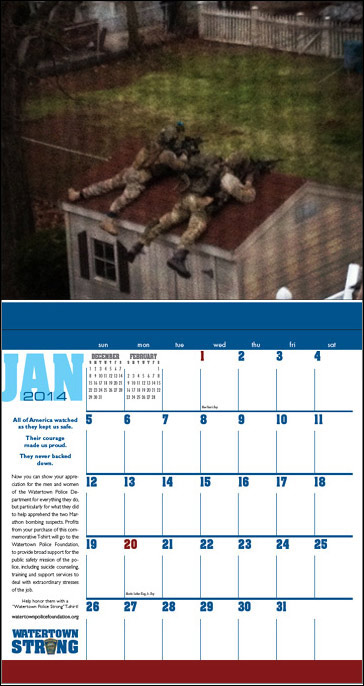
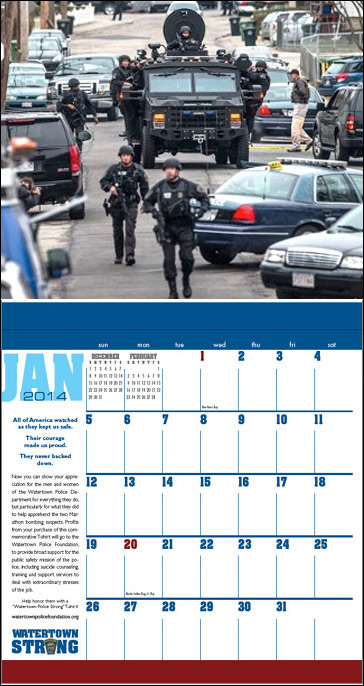
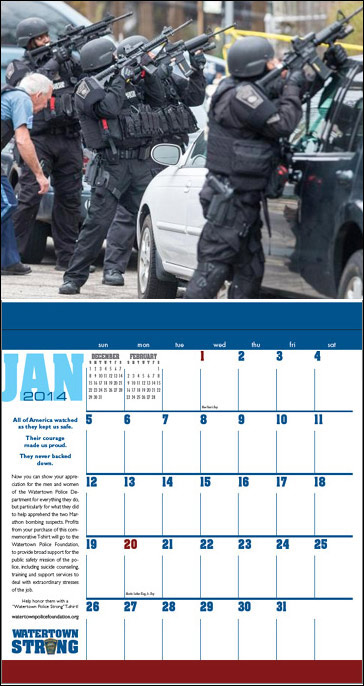

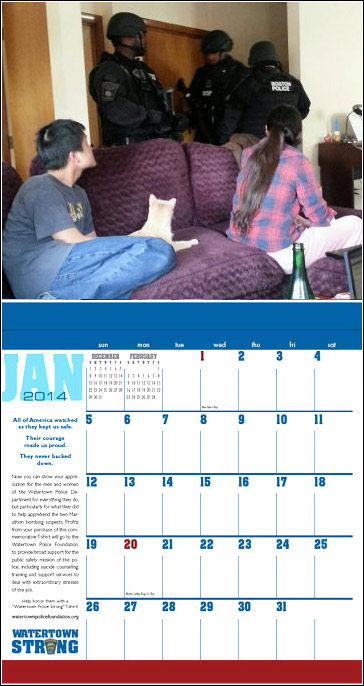
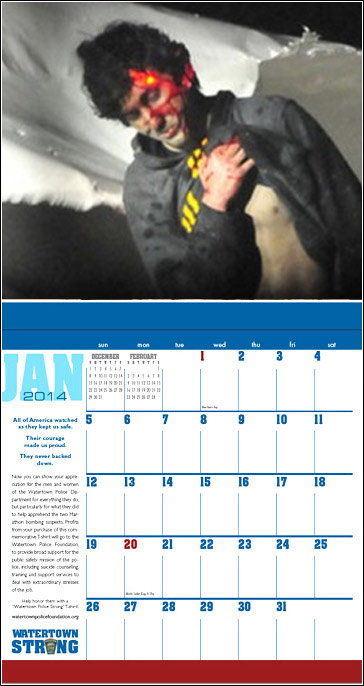
No comments:
Post a Comment